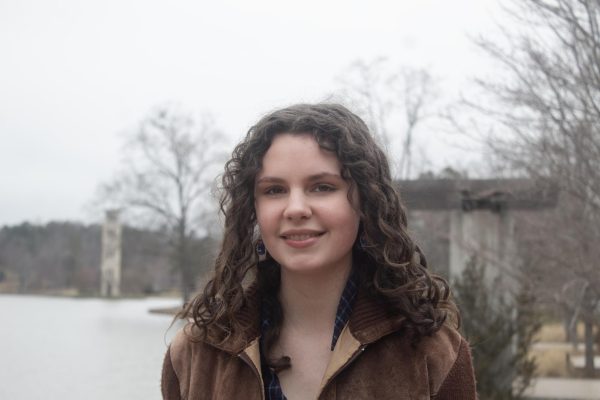Sitting alone in the airport, about to fly out to spend the semester studying abroad in the British Isles, I panicked. At that moment, I would have traded anything to be unpacking my car outside Clark Murphy with my friends. Instead, I got on the plane, and it was one of the best decisions I’ve ever made.
However, studying abroad can be challenging. My first few days in Edinburgh were daunting, as I was untethered from my friends and family for the first time and had to adjust to an unfamiliar environment.
The format of my program brought specific challenges as well. Throughout the semester, we moved residencies every two weeks, studying drama across Scotland, Ireland and England before spending our final six weeks in London. Because of this constant movement, even the seemingly simple act of navigating became a challenge. In every new place, we had to adjust to a new form of transportation: walking, biking, taking the subway or relying on the bus system. We lived in constant flux, but each period of readjustment exposed us to something new, forcing us to become adaptable.
Facing these challenges fostered interpersonal skills and openness to difference, which enabled me to become more comfortable interacting with those from other cultures and backgrounds. At one point in the semester, our group of 11 stayed in a hostel at the heart of the Edinburgh Fringe Festival, surrounded by performers and visitors from all over the world. Throughout the semester, we met students, lecturers and performers who shared their unique perspectives on art and culture, giving us an idea of the history and values of the places we were passing through. My conception of the world opened up as I was exposed to new and diverse ideas through these performances and interactions.
Mobility forced me to live more intentionally. Since we moved almost every two weeks, we experienced a variety of places, from the peaceful Scottish Highlands to the hustle and bustle of Central London. In each new location, I had to decide what I wanted to explore with my limited time while also making space for academics and self-care. I learned to plan more proactively, deciding what mattered most to me in each new place and making sure I soaked in as much as possible. Finding that balance between schoolwork and exploration pushed me to live more purposefully in order to make the experience worthwhile.
Realizing your ability to thrive in the unfamiliar builds an invaluable sense of confidence. For me, choosing to study abroad was an intentional decision to step outside of my comfort zone, separating me from the social networks, institutional support systems and cultural norms that form a foundational part of life at Furman. This decision forced me to put more trust in myself, and I realized my own resilience as I grew comfortable in new environments.
Furman’s many study abroad programs make it easy to find an experience that aligns with your interests and goals. In my multi-country program, we studied theatrical performances ranging from experimental one-man performances at the Fringe Festival to plays at the Royal Shakespeare Theatre in Stratford upon Avon. Faculty-led travel study is more flexible than a typical semester at Furman and allows opportunities for students to explore independently. Similar faculty-led programs include the Furman Wild Semester and the Art and Empires MayX. Other programs exist for students interested in language immersion or internships abroad.
The decision to study abroad may seem daunting at first, but the rewards outweigh the challenges. It fosters adaptability and openness to difference, building marketable skills that are becoming increasingly sought after in our globalized world. The experience also promotes personal growth by boosting confidence, resilience and self-awareness. While there are numerous understandable deterrents to studying abroad, including health, social and financial concerns, students should seriously consider this once-in-a-lifetime opportunity.




































